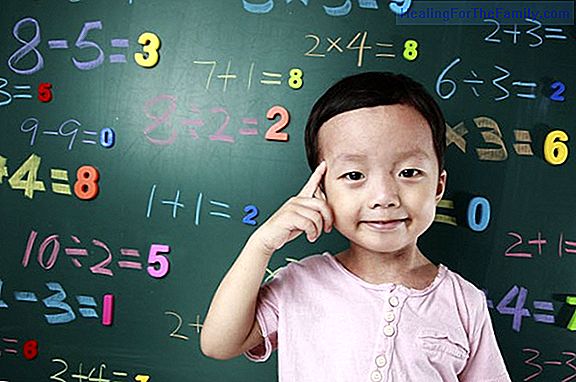How to know if you are a too strict parent
Children often suffer too many 'no' at home and at other times parents know that they must apply disciplinary rules but do not know if those techniques are too strict or if they are appropriate . There are parents who tend not to be too strict (perhaps somewhat permissive), but others, not knowing i
Children often suffer too many 'no' at home and at other times parents know that they must apply disciplinary rules but do not know if those techniques are too strict or if they are appropriate .
There are parents who tend not to be too strict (perhaps somewhat permissive), but others, not knowing if they are really doing it right or not, yes they are, and a lot.
How to know if you are too strict with your child

It is necessary for parents to value whether or not they are being too strict with their children, since if the answer is yes they will have to look for a more appropriate form of teaching in childhood. Children do not need rules that are too strict, they need well-established consequences, flexibility, understanding that they are responsible for their actions, and above all, knowing what is expected of them at all times.
1.At home there are too many rules. One sign that you are too strict is that you establish so many rules that you are not able to fulfill them all. It is necessary to establish fewer rules but be consistent in their reinforcement, so you can mark the rules as very important.
2.Your child's behavior conditions your feelings towards them. If you tell your child things like: 'Fine, but you can do it better', or 'I love you, but if you do not behave like that I will get angry with you', or maybe: 'You will be miserable if you do not listen to me' , watch out! These and similar phrases can directly attack your child's self-esteem.
3.Rules do not respect children. For example, in adolescence children can listen to music with obscene language or play violent video games. Parents can set limits and teens say it's their personal taste ... so there can be a power struggle. So that this does not happen it is necessary to discuss and weigh openly with your child what is better and what is not in order to decide what to do at a certain time.
4.Do not measure your words. Many parents do not measure their words, nor the form or tone in which they use them. In this sense, it is necessary to know that quiet voices can say anything. The way things are said on many occasions is more important than content.
5.Threats many times. If you tell your children that you are going to do something (often meaningless like you are going to throw away all their toys) and then do not do it, your child knows that this will not happen and that what you have said is an empty threat that is useless You need to think carefully about threats before saying them.
6.Your children look, but they do not listen. Children have learned that they do not need to talk because it does not matter what they say. With an authoritarian style they do not trust their parents to communicate openly, so if the children do not have the opportunity to express their opinions they will not feel the need to do so. Parents do not have to agree on what they say, but you have to let them say so.












